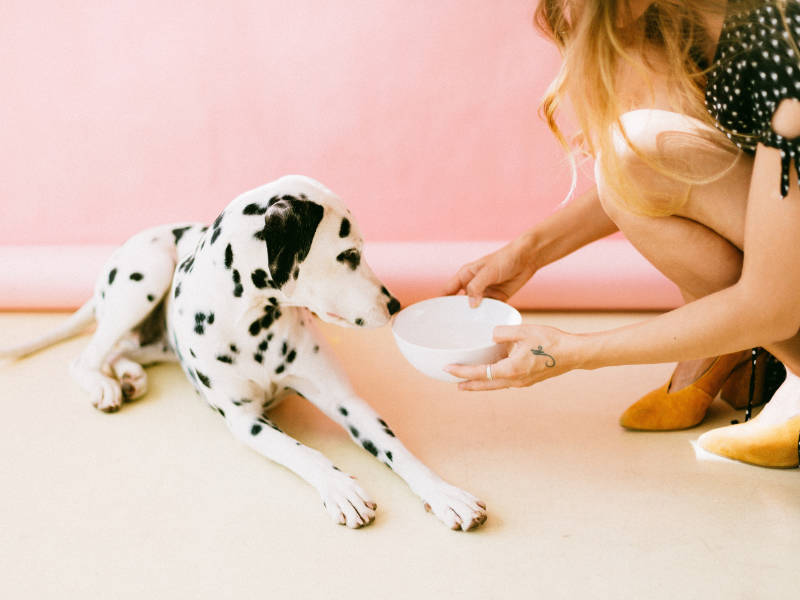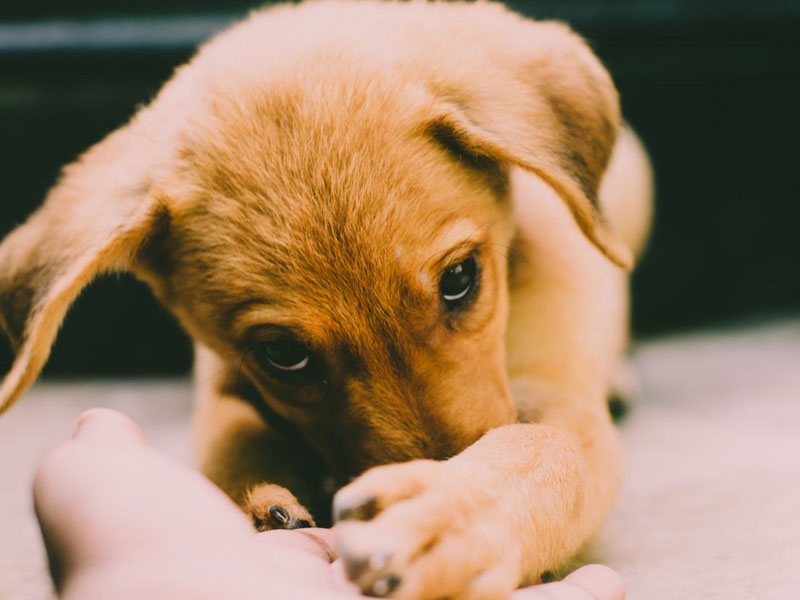In light of Crufts 2020, we have put together information covering all the breed groups according to The Kennel Club.
Hound
Originally used for hunting either by scent or by sight. The scent hounds include the Beagle, Basset Griffon Vendéen, Bloodhound and sight hound breeds, such as the Whippet and Greyhound. Many of them enjoy a significant amount of exercise and can be described as dignified, aloof but trustworthy companions.
What is a Scent Hound?
Scent hounds primary use their sense of smell to hunt, rather than hunting by sight.
With a scent hound, you can play great hide and seek games with them. Fill a dog safe toy with their favourite Eden treat, hide it indoors or out in the garden and let them hunt and track it down.
With having a more powerful sense of smell, this does of course mean that they are more likely to sniff out some tasty kitchen treats. So be sure that food is out of reach!
Examples of scent hound breeds:
- Dachshund
- English Springer Spaniel
- Black and tan Coonhound
- German Shorthaired Pointer
- Basset Hound
- Beagle
- Bloodhound
What is a Sighthound?
A sighthound will hunt primarily by sight rather than scent. Because of this they are usually very agile and quick as they need to keep up with the prey once spotted.
A sighthound’s frame would typically allude to having a lean body with a deep chest in order to support a larger heart and lungs.
Examples of Sighthound breeds:
- Greyhound
- Irish Wolfhound
- Scottish Deerhound
- Whippet
- Pharaoh Hound
- Afghan Hound
- Italian Greyhound
Working
For centuries these dogs were selectively bred as guard dogs and search and rescue dogs. Arguably, the working group consists of some of the most heroic canines in the world, aiding humans in many walks of life. Breeds include the Boxer, Great Dane and St. Bernard. This group consists of the real specialists in their field who excel in their line of work.
- Leonberger
- Rottweiler
- Dogue de Bordeaux
- Dobermann
- Siberian Husky
- Bernese Mountain Dog
- Newfoundland
Eden have created food to support your working dog, take a look at our feeding guides.
Utility
This group consists of miscellaneous breeds of dog mainly of a non-sporting origin, including the Bulldog, Dalmatian, Akita and Poodle.
The name ‘Utility’ essentially means fitness for a purpose and this group consists of an extremely mixed and beautifully varied, most breeds having been selectively bred to perform a specific function not included in the sporting and working categories. Some of the breeds listed in the group are the oldest documented breeds of dog in the world.
You will notice that the utility group has an extremely beautifully varied of breeds in terms of size. This group is very diverse and can be hard to identify
A few examples of Utility dog breeds:
- French Bulldog
- Tibetan Spaniel
- Boston Terrier
- Chow Chow
- Schnauzer
- Lhasa Apso
Terrier
Terriers were originally bred and used for hunting vermin. 'Terrier' comes from the Latin word ‘Terra’, meaning earth. This hardy collection of dogs were selectively bred to be extremely brave and tough, and to pursue fox, badger, rat, otter and more; either above and below the ground.
You might joke and say the name Terrier comes from the word Terror with them having tough/strong personalities!
A few examples of Terrier breeds:
- Jack Russell
- Border Terrier
- Airedale Terrier
- West Highland White Terrier
- Welsh Terrier
- Fox Terrier
- Staffordshire Bull Terrier
Gundog
Originally trained to find live game and/or retrieve game that had been shot and wounded. This group is divided into four categories - Retrievers, Spaniels, Hunt/Point/Retrieve, Pointers and Setters - although many of the breeds are capable of doing the same work as the other sub-groups. They make good companions as their temperament makes them ideal all-round family dogs.
A few examples of Gundog breeds:
- German Shorthaired Pointer
- Irish Setter
- Retriever
- Labrador
- Hungarian Vizsla
- Spaniel
- Weimaraner
- Pointer
Hunting
Historically, before game can be shot it needs to be flushed out. To do this, the dog needs locate the game and chase them either to make them run, or fly. Breeds commonly seen on the beat are the Spaniels. These are the more lively breeds, able to get to the more dense areas, they do well to retrieve, making them great for a dual purpose. This isn’t to say that any of the other Gundog breeds don’t do well in the hunting side. With the right training and patience, you can get your Gundog to do all three of these. Some breeds excel in different areas.
Pointing
This takes a lot of will power for the dog to pick up a scent, freeze ‘on point’ to allow the handler to catch up, before pursuing the trail to flush the game out.
More suited breeds for pointing, are the Pointers and Setters, to name just a few.
Retrieving
This is an important job for gundogs, often when game is shot it can be difficult to see where the game has fallen, it’s the gundog’s job to find the game and bring it back to the owner. Breeds that are the strongest in this category are: Labrador, Golden Retriever and Flat Coated Retriever.
HPR
You can also get breeds that have the ability to do all three of these with ease. These are known as your HPR (hunt, point, retrievers) breeds such as Weimaraner and German Shorthaired Pointer sit within this category.
Eden, have a fabulous formula to give your Gundog the full nutritional package they need.
Pastoral
The Pastoral Group consists of herding dogs that are associated with livestock such as, working cattle, sheep, reindeer and more. The herding dogs often have a weatherproof double coat to protect them from the elements when working in severe conditions. Breeds such as the Collie family, Old English Sheepdogs and Samoyeds who have been herding reindeer for centuries are but a few included in this group.
A few examples of Pastoral:
- Border Collie
- Rough Collie
- Australian Cattle Dog
- German Shepherd
- Belgium Shepherd
- Welsh Corgi
- Shetland Sheepdog
- Lancashire Heeler
Generally pastoral breeds are very intelligent and need more extensive amounts of exercise as they were bred for employment, so they have great stamina and endurance.
As well as being great herders and also guard dogs, many of the pastoral breeds have excelled in the world of flyball. This is due to their agility and obedience. But we can’t talk about flyball without talking about sheepdog trials, so much time and patience is put into the dog, their intelligent shines through in the sheepdog trails.
What is flyball?
Flyball is a head to head relay race, each dog must race against each other tackling an obstacle course, a spring board to which a ball is released, then race back down the obstacle course.
Toy Group
The Toy breeds are smallest (as the name suggests) of the groups. Toy breeds can make great companion or lap dogs. Many of the Toy breeds were bred for this capacity, although some have been placed into this category simply due to their size. Don’t let their size fool you though, some of these breeds have huge personalities and in some cases think they are bigger than they are. They do not need a large amount of exercise and some can be finicky eaters.
A few examples of Toy breeds:
- Bichon Frise
- Chihuahua
- King Charles Spaniel
- Pomeranian
- Pug
- Yorkshire Terrier
- Papillon
- Maltese


